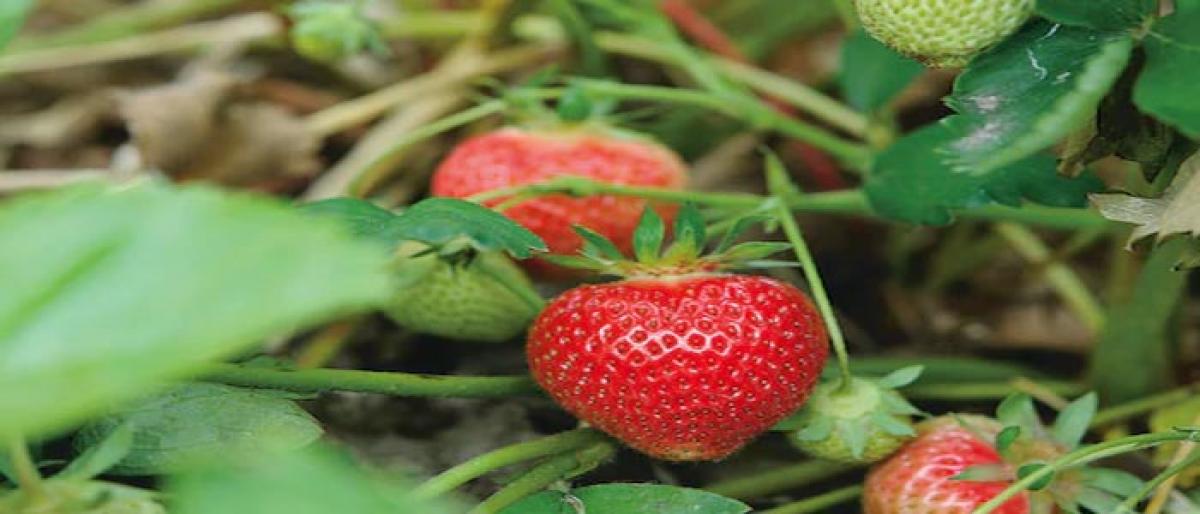Live
- ANGRAU signs MoU with CABI
- Chaitanya Donates Rs. 2 Crore Golden Vijayanthi Necklace to Sriveera for Utsavamurti
- Workshop held on immunisation
- Rethinking Hospitality: The Need for Period Products in Luxury Hotels
- Over half of Australian species decline following 2019-20 megafires: report
- APSRTC bus hits stationary bus, driver, passengers hurt
- Trump and Biden Discuss Israel-Gaza Conflict in White House Meeting Amid Hostage Crisis
- AP students bag gold medals in archery
- India Creates History: Breaking Records in T20 Cricket Against South Africa
- Govt focuses on liquor sales than ryot welfare
Just In

A few tribals are taking up strawberry cultivation at the hilly regions of Lambasingi, Anantagiri and Araku in Visakhapatnam district.
Visakhapatnam: A few tribals are taking up strawberry cultivation at the hilly regions of Lambasingi, Anantagiri and Araku in Visakhapatnam district.
As the Araku Valley witnesses highest tourist footfall during this season, the farmers are hoping that visitors would relish the bright red colour fruit. Despite being a cost-intensive cultivation, Kusalavadu of Godipakalu hamlet in Lambasingi took the risk of growing strawberry plants in his one acre.
After tasting success in the last two years and learning nuances of strawberry farming, this year with a budget of Rs 2 lakh he went for one-and-a-half acre cultivation. Drawing inspiration from him, his neighbours and tribals from Anantagiri and Araku, too, are flowing in his
footsteps.
“I already cautioned my colleagues about possible barriers in strawberry farming before asking them to go for only one acre cultivation,” says Kusalavadu, who has learnt the art of finding good market for his produce.
As there was no facility to develop strawberry seedlings in Araku, Kusalavudu imports the plants from Pune at a cost of Rs 12 per each plant. According to him, an acre can accommodate more than 20,000 plants. “We get 250 – 300 grams of fruits from each strawberry plant.
Going by the plant distributor words, the farmer should get one kg produce per plant, but that’s over stated,” he explained and added that they sell each box with 200 grams of strawberries at Rs 250.
Tourists coming here (Araku Valley) purchase 80 per cent of my produce and the remaining will be sent to the markets in Vizag city. “So far, I never experienced loss in strawberry farming. But this is a risky project and demands laborious work with an eye for minute details as per climate changes,” he observes.
When asked about the support from the government side, he said apart from providing subsidy of Rs 8,000 for mulching sheet, there has been no assistance so far.
“Last year, the ITDA officers collected the whole data in regard to strawberry farming. I was also informed that they would prepare a proposal to start project from this year. But it did not take off,” he said.Kusalavadu is growing four varieties of strawberries, including Winter Dawn, Nabila, Sabrina and Chamrousse, which grow between 15 °C and 30 °C from November to March. Stating that each plant takes two litres of water per day, he pointed out that organic fertilisers have been very helpful for strawberry farming.
Y Abhishek Paul

© 2024 Hyderabad Media House Limited/The Hans India. All rights reserved. Powered by hocalwire.com







